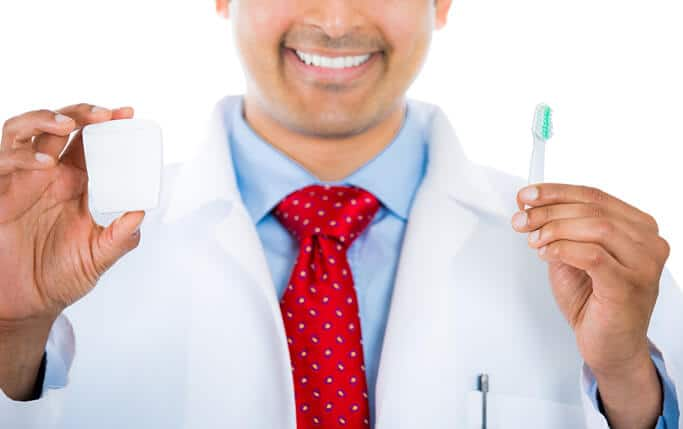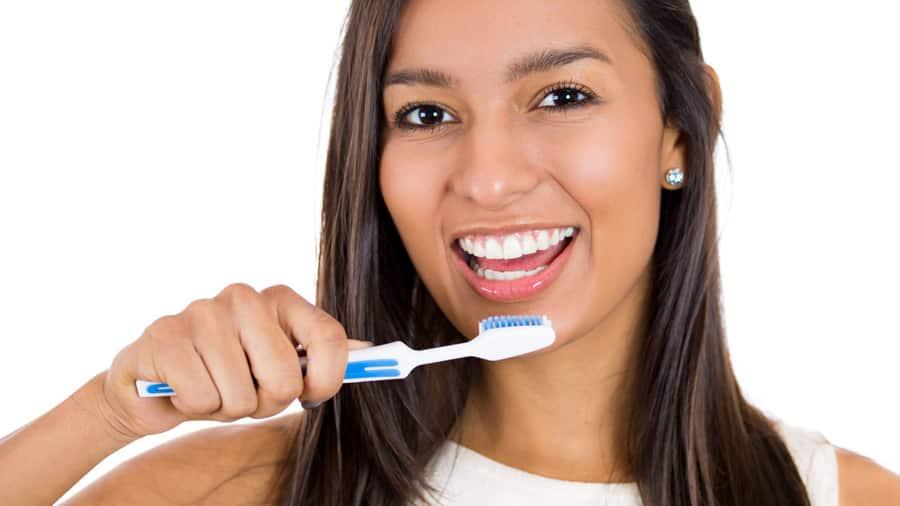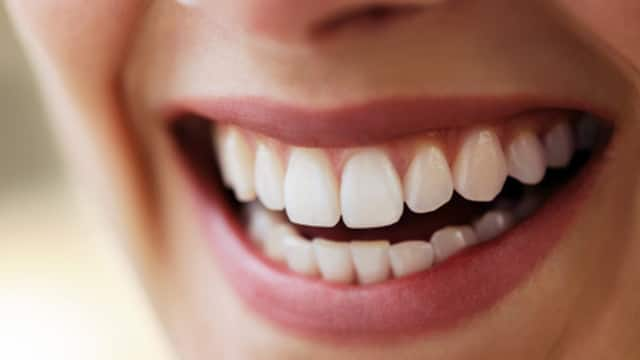Types of professional whitening procedures
- In-office whitening - An in-office treatment where the whitening gel will be applied to your teeth; the gel will be applied with special care by your dentist because of the strong whitening properties.
- Custom tray home use - This is similar to the in-office whitening, but you can do it in the comfort of your own home using a milder whitening gel.
What makes Professional Whitening Different?
According to the IDA, various chemical and physical agents can be used to whiten teeth. Off-the-shelf products typically rely on a carbamide peroxide solution varying in concentration from 10% to 22%. But what makes professional whitening cost a bit more is the difference in the active ingredients found in the whitening agent.
Professional teeth whitening procedures have:
- Dental Supervision - Before the whitening procedure, your dentist will perform a dental examination to ensure that your gums and teeth are healthy for the treatment and determine if there are any crowns or veneers that will not be whitened.
- Stronger Whitening Agents - Professional in-office whitening procedures are carefully monitored and contain a higher concentration of whitening gel. For some patients, this may cause temporary sensitivity, and the dentist may place a gel on the gum tissue, so the soft tissues of the mouth are not irritated by the whitening gel.
- Faster Results - Nevertheless, because the concentration of professionally applied whitening gel is stronger than what you'd get in an at-home whitening product, results are visible immediately rather than several weeks afterward.
It is essential to know that teeth discoloration may be caused by a specific underlying disease or condition that requires dental therapy. So, visit your dentist for a consultation before choosing a method to brighten your smile.
Who is Professional Whitening for?
The good news is that professional teeth whitening is right for most people with permanent teeth and good oral health. If you do not experience gum sensitivity or receding gums, then you may be less sensitive to chemicals in whitening procedures. In addition, it works well for people with stubborn, yellowish stains but may not always whiten brownish and greyish stains. Whitening treatments are a great option for people who haven't had previous work done to their front teeth; tooth-coloured fillings, crowns, and caps cannot be whitened like the rest of your teeth. You can always consult with your dentist to find out if you are a good candidate and for more teeth whitening options available to you.
Alternative Options
If you can't get professional whitening treatment, don't worry, there are plenty of alternative treatments that can help you improve your smile:
- Professional cleaning - Regular dental cleaning helps reduce and may even remove staining on your teeth.
- Veneers or bonding - This is a great option if you have had restorative work to the front teeth. Veneers or bonding can help you get the dazzling smile you want.
- Over-the-counter whitening products - Whitening toothpaste, kits, and whitening gels are affordable options that can help with minor discoloration.
Is Professional Whitening Worth It For You?
After visiting your dentist and getting the all-clear for teeth whitening, you can begin choosing a method to brighten your smile - this all depends on your budget and preference. If you're looking to flash a smile soon, professional in-office whitening is a great option. For more sensitive teeth, though, your dentist may recommend a custom-fitted whitening tray to use in the comfort of your home. In addition, there are lots of affordable and convenient over-the-counter whitening products that can help you get to the bright smile you deserve!
This article is intended to promote understanding of and knowledge about general oral health topics. It is not intended to be a substitute for professional advice, diagnosis or treatment. Always seek the advice of your dentist or other qualified healthcare provider with any questions you may have regarding a medical condition or treatment.
ORAL HEALTH QUIZ
What's behind your smile?
Take our Oral Health assessment to get the most from your oral care routine
ORAL HEALTH QUIZ
What's behind your smile?
Take our Oral Health assessment to get the most from your oral care routine













